Terfs, trans women, and feminism
Trans women and cis women know that it makes no sense to they/them the man who has been following us the last four blocks
As I’ve written before, “social justice” culture does not have a singular, unified understanding of gender. There are multiple frameworks battling it out and sometimes coexisting in an uneasy tension. One of these worldviews argues that gender identity is an entirely internal experience, and that it is impossible to know someone’s gender by looking at them.
When I was deep in “social justice” world I trained myself to always use they/them pronouns unless I had explicitly been told what pronouns someone uses. This is considered best practice by many people in “social justice” world. Doing this leads to some very weird situations. For example, I have always had a practice of intervening on unfolding domestic violence situations when I come across them in public places. In talking and writing about this practice it felt absurd to refer to the people involved using they/them pronouns. While it is true that domestic violence can happen in queer relationships and in unusual gender configurations, the reality is that domestic violence remains primarily a type of gendered violence. Every time I have intervened on domestic violence situations it was the man who was being aggressive to the woman. I didn’t ask anyone their pronouns to know that. I know that because gender is not just an internal experience, it’s also a social role that has shared cultural signifiers, as well as being a power dynamic. Men have social power over women.
A lot of the experiences that are central to gendered oppression for women have been stripped of their gendered context within “social justice” culture. Because not all women can get pregnant and not all people who can get pregnant are women, there has been an intense push to strip all discussion of pregnancy, abortion, birth, breast feeding, and motherhood of gendered language. Because people’s genders are more complex than the social role they’ve been assigned, we have started to act as if there is no social reality of gender, and therefore no social reality of gendered oppression. Or we talk about gendered oppression broadly, lumping cis women, trans people of all genders, gender nonconforming people, “femmes”, and sometimes also queer people generally, into one large category without exploring the differences between these various experiences. Sexism and misogyny are rarely talked about in “social justice” culture anymore. You are much more likely to hear people talking about gendered oppression using the language of “femmes” rather than the language of “women”, which is bizarre and actually reenforces sexist and outdated ideas about gender. Women who aren’t particularly feminine also experience sexism. Feminism isn’t much of a thing anymore in “social justice” world, except for #metoo discourse, and even then people are much more likely to talk about “survivor” as an identity, rather than talk about the gendered reality of the majority of sexual and domestic violence.
Saying anything about this will immediately have the speaker branded a “terf.” I have already been called a terf, and also a “trans exterminationist”, for straying from the “social justice” orthodoxy on this matter. But here’s the thing — I am not a terf (I have no desire to exclude trans people from anything) and I am definitely not a trans exterminationist. I find it deeply offensive to be called that because some of the people I love most in the world are trans, and because respect for human dignity is fundamental to everything I do and everything I believe. I am in solidarity with trans people. But I don’t believe that the current way we talk about, and police speech about, gender is helpful, for trans people or anyone else.
There are things I have in common with trans women that I don’t have in common some afab trans people. There are things I have in common with some afab trans people that I don’t have in common with trans women. There are things I have in common with most cis women, that I don’t have in common with some cis women. There are things I have in common with femmes of all genders and things I don’t have in common with femmes of all genders. Gender is complex, personal, social, and like a really complex venn diagram with overlapping experiences and experiences that don’t overlap. But, at a population level, “woman” is still a meaningful category.
Most women can, at some point their life, get pregnant. Therefore, pregnancy, abortion, birth, breast feeding, and motherhood will always be women’s issues, even though not all women can get pregnant and not all people who can get pregnant are women. Insisting that we no longer use the language of “women” when talking about experiences that primarily impact women and that have been fundamental to women’s oppression throughout history, is absurd. It’s actually offensive. It represents the gentrification of feminism by university educated queers who care more about language than about material needs. The idea that we can just switch to “person with a uterus” or “person with a cervix” is both dehumanizing, and also, concretely harmful. The reason it is harmful is that we still live in a world where the vast majority of women do not have access to sex education and don’t even have a basic understanding of their own anatomy. It is not uncommon for adult women to not understand why they can pee with a tampon in — they don’t even know that they pee out of their urethra not their vagina. Trying to do public health campaigns that let women know about the importance of PAP smears for cancer screening cannot assume that women know what a cervix is or that they have one. We need reproductive and sexual health services that speak to and make sense to the vast majority of women, and we also need trans specific reproductive and sexual health care. We need both.
Gendered violence is another area where doing away with gendered language makes it harder to address the problem. Sure we could just say “people who abuse” and “people who are abused” but this does nothing to help us think about why so many men are abusing so many women. It does nothing to help us understand how we got into this situation and how to change it. It does nothing to address the pervasive fear of sexual violence that structures women’s lives. It does nothing to address the trauma of gendered socialization that separates us from the full expression of our humanity, regardless of our gender. We need to be able to talk about gendered violence, not just as violence, but as violence that is gendered and to do so, we must be able to use gendered language.
Terfs are really mad about the way that it has become a social crime to use gendered language for experiences like pregnancy and gendered violence. Terfs rightly notice that feminist analysis has all but vanished from “social justice” culture. Being a woman, on its own, does not get you any marginalized identity points. A woman who is thoroughly traumatized from repeated gendered violence, who carries the entire burden of reproductive responsibility in her sex life, who will never do things she wants to do because she’s afraid of assault, who is trained to hate her body and devalue her intelligence, who is still regularly condescended to, objectified, and dismissed, is actually framed as privileged if she is also white and straight. Identitarianism will not validate the very serious oppression that she lives. She might get some points as a survivor, but not as a woman.
Terfs tend to blame this situation on trans women, and can be incredibly fucking cruel and dehumanizing when talking about trans women. To the terfs reading this: whether or not you consider a trans woman to be a woman in the way that you are a woman is honestly irrevelent. You have the right to understand gender as primarily rooted in biology, but you also live in a pluralistic world full of people with different ideas, beliefs, and experiences. I don’t believe in Allah and I would never scoff at a woman in hijab constantly mocking her religious beliefs because I don’t share them. I treat her with respect and dignity because she deserves that. Trans women deserve that too. We can fight for the right to talk about women’s experiences using gendered language and we can fight for the return of feminist analysis, while still refusing to dehumanize, degrade, or disrespect trans women.
And here’s a very important point to consider: It is not trans women who are insisting we don’t use gendered language to talk about anything. The idea that gender is a primarily or exclusively internal experience rather than a social one comes mainly from nonbinary people, in particular, afab nonbinary people. I remember when it was extremely enforced in “social justice” world to always ask for someone’s pronouns upon meeting them. It was trans women in my life and in my social world who were most annoyed at this practice. The general feel was, trans women, like all women, are communicating about their gender through their social behaviours and appearances. Not in a stereotyped, sexist way, but in the way that we live in a world that uses various gendered social signifiers. It is some nonbinary people, in particular gender abolitionist, afab nonbinary people, who want to do away with gendered social signifiers. Not trans women.
I have never met a trans woman who was mad about women talking about pregnancy using the language of “women.” Just like how there are some cis women who can’t get pregnant, and those women don’t feel like their gender is attacked when we talk about pregnancy in gendered terms. Acknowledging that most women can get pregnant and most people who can get pregnant are women, does not deny the reality of women who can’t get pregnant or the reality of trans men and nonbinary people who can get pregnant. I have also never met a trans woman who wanted me to they/them the man who was being creepy towards her on public transit.
The intense policing of gendered language in “social justice” world does not come from trans women. It comes from afab nonbinary people, primarily. Sorry, this is just true. We have the right to debate and discuss about when, if ever, it is appropriate to use gendered language. We have the right to be mad that we have felt socially threatened and coerced for using gendered language to talk about gendered experiences. We have the right to want to revive feminism and talk about the specific oppression that women face. But we are wrong, both in the sense of being incorrect and in the sense of being immoral, if we choose to scapegoat trans women on this topic.
All of us in “social justice” culture who quietly follow the rules, refuse to ask questions or think critically, attack women who want to use gendered language to talk about gendered experiences, call terfs nazis, and act as if all trans people have unified experiences and opinions, are contributing to the situations of trans women being scapegoated. It’s afab nonbinary people who have largely created the situation where you get called out for using gendered language to talk about gendered violence or pregnancy, and it is trans women who get blamed for it. It is trans women writers and public figures who experience terfs publicly protesting when they speak, not afab nonbinary people. It is trans women who are subjected to a total attack on their human dignity as a result of misdirected rage at the erasure of feminism.
Kai Cheng Thom is the first person I’ve ever seen publicly saying that we must find a way to reach across the divide and find common ground with terfs. She has been attacked and called out by adherents of “social justice” orthodoxy for daring to embody her principle’s in this way. While afab queer, nonbinary, and trans people post up a sign that says “No terfs / No swerfs / No Nazis” and call it a day, Thom has the courage to go deeper than that and ask what pain is causing the terfs to scapegoat trans women in this way. Thom recently spoke at an event memorializing the 1989 December 6th massacre in Montreal. She experienced massive dehumanizing harassment for speaking at an event about violence against women. It’s easy for those of us in “social justice” world to scapegoat the terfs who are scapegoating Thom. But I think we have a much bigger responsibility than that.
We must refuse to let trans women take the fall for a culture of language policing that was not created by trans women. If we are in true solidarity with trans women, we need to listen to terfs to find out what they are upset about and how it can be addressed without dehumanizing trans women. Thom is correct in saying that terfs and trans women actually have a lot in common, because all women do. We share experiences of sexism, misogyny, and gendered violence that deeply shape our lives. We live in a post-feminist context in which “social justice” orthodoxy insists that we should not talk about being women. But we are women. Trans women and cis women know that it makes no sense to they/them the man who has been following us the last four blocks.
I am tired of gender discourse being controlled by those who believe that gender is an entirely internal experience rather than also being a social experience. This way of thinking about gender, and especially its enforcement through cancel culture, is bad for women. All women, including trans women. There is definitely a way to acknowledge that gendered categories are imperfect, porous, fluid, overlapping, and diverging without doing away with gendered language all together or insisting that we can’t talk about the gendered dynamics of a situation until we’ve asked everyone’s pronouns.
I want a return of feminism, which requires a return of gendered language. We need gendered language to name gendered dynamics and experiences. Trans women are not the enemy of feminism and feminism is not the enemy of trans women. Trans women, like all women, need feminism. Feminism needs trans women like it needs all women. And we fucking owe trans women so much more than a “No terfs” sign.
Announcements and new things
Book Club with Tara and DJ: 'The Ministry for the Future' by Kim Stanley Robinson
The eyes looking back: a collection of essays on feminism, anger, boundaries, and grief.
Reclaiming Our Power: A special workshop for women by Clementine Morrigan at Breitenbush Hot Springs in Oregon, USA, in March 2024 — Limited spots available.
Contemporary Spirituality: Meaning and Mysticism in the Modern Age (Upcoming course I’m teaching in) — Use the code TEACH-CS-MORRIGAN for a discount.
Books are open for April for The Stuck Places are Portals (Sliding scale available)
One on one generative conversations with me on areas of your life where you feel stuck. Once you purchase your session you will receive a link through which you can schedule your spot. Available times may vary and spots may not be available for a few weeks or more, but you will have access to the first available spot once you've booked.
What these sessions are not: a quick fix, a replacement for therapy, an ongoing supportive relationship.
What these sessions are: a generative hour long conversation to discuss an area of your life that you want help shifting, a space for creating next steps and new beginnings, a compassionate space of witnessing and attention, an opportunity to access a new perspective, and a way to connect to further resources.
Areas where I hold a lot of experience and knowledge: trauma recovery, nervous system work, attachment theory, relationships, stressful dynamics within partnerships, polyamory, sexuality, finding your purpose / life calling, making big changes, creative practice, self-employment, cancel culture and the aftermath of you or a loved one being cancelled, integrity, responsibility, recovering from people pleasing, growing into your personal sovereignty, cracking open shame, and the sacred practice of boundaries. I am also willing to bring my knowledge and attention to whatever you bring to discuss.
If you have wanted the opportunity for an extended conversation with me about something going on in your life, now is your chance.
Featured from the shop
A new zine! Available in hard copy and digital.
The eyes looking back is a collection of essays on feminism, anger, boundaries, and grief. Wide ranging in their inquiries, these essays touch on the subtle sexism of self-proclaimed feminist men, the difficulty of expressing desire and setting boundaries in the aftermath of childhood trauma, the psychiatrization of trauma and the junk science of the DSM, the experience of sexual assault through negligence rather than malicious intent, and the grief and pain of constrictive gender roles, heteronormativity, and objectification. These essays are compassionate and curious while insisting on the importance of anger and the necessity of telling the truth.
List of essays
When you say I seem angry, I get more angry: Why your anti cancel culture fave is still a fucking feminist
The substitutes we accept for love
Sexual assault through negligence
As forcefully as the moment demands: On boundaries, anger, and messy break ups
I'm so angry, I don't think it will ever pass
The humiliation of desire: On asking for what I want
Other people's disappointment
The eyes looking back: On my refusal to be an object and what this can sometimes make men feel
Clementine Morrigan is a writer and public intellectual based in Montréal, Canada. She writes popular and controversial essays about culture, politics, ethics, relationships, sexuality, and trauma. A passionate believer in independent media, she’s been making zines since the year 2000 and is the author of several books. She’s known for her iconic white-text-on-a-black-background mini-essays on Instagram. One of the leading voices on the Canadian Left and one half of the Fucking Cancelled podcast, Clementine is an outspoken critic of cancel culture and a proponent of building solidarity across difference. She is a socialist, a feminist, and a vegan for the animals and the earth.
Browse her shop, listen to her podcast, book a one on one session with her, or peruse her list of resources and further reading.


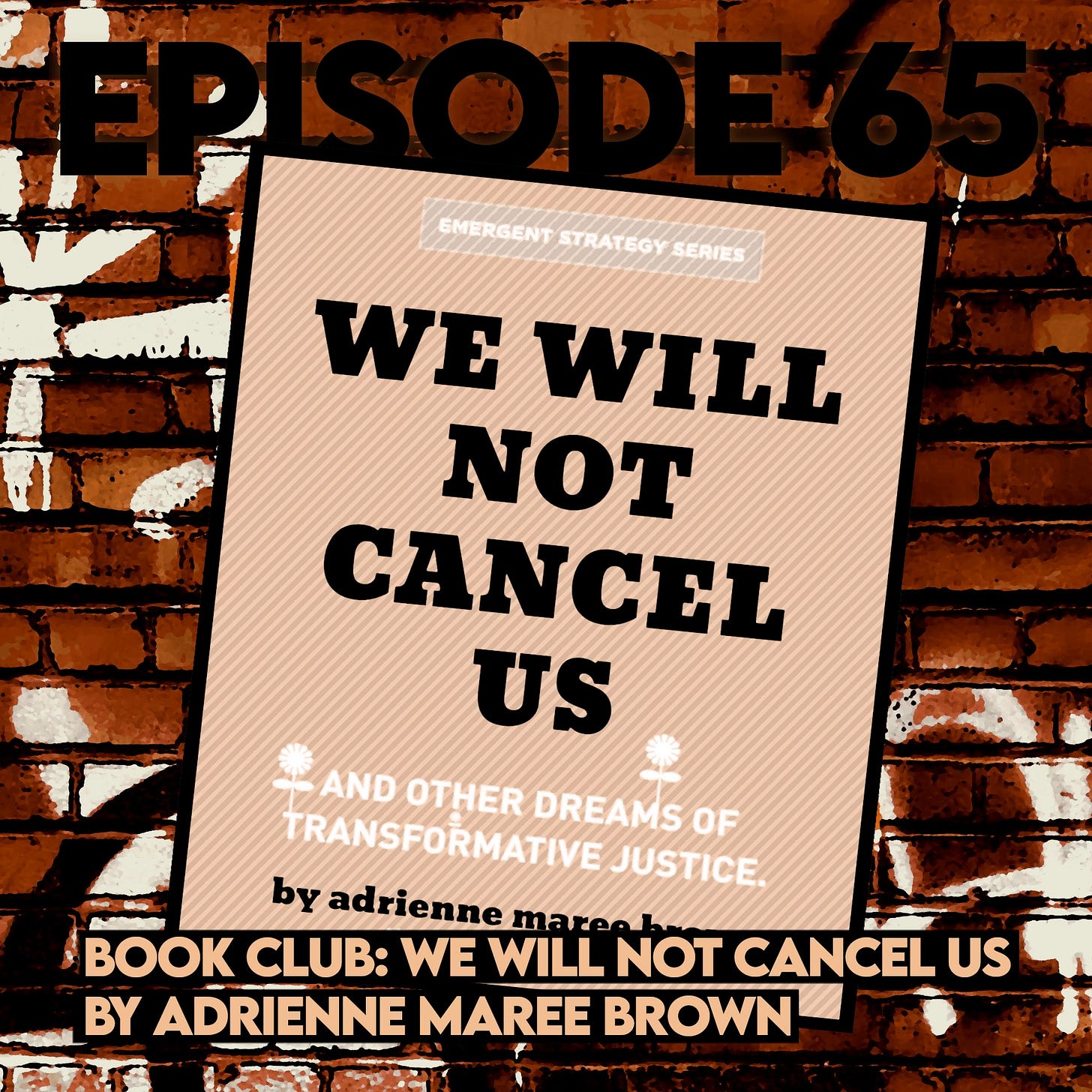
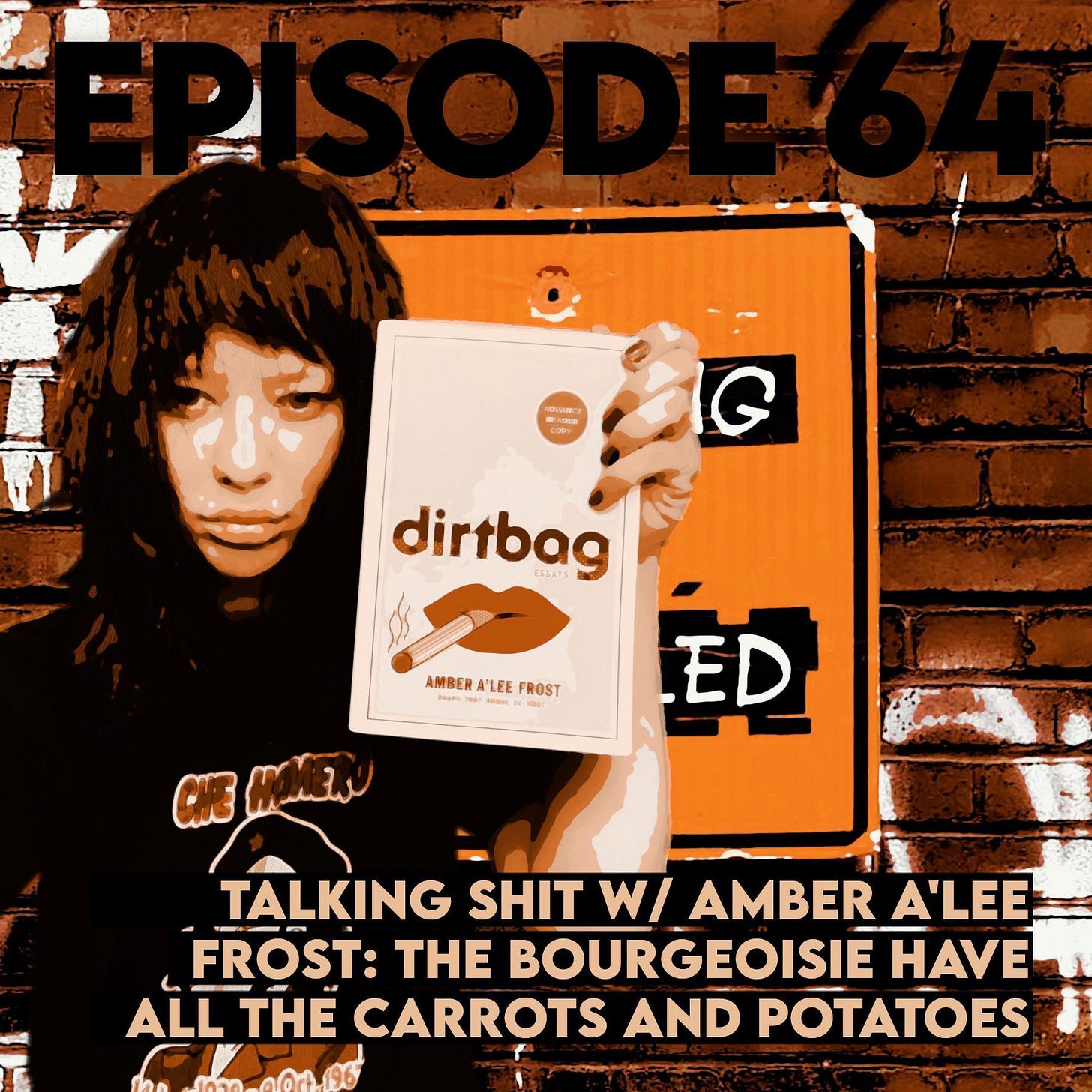
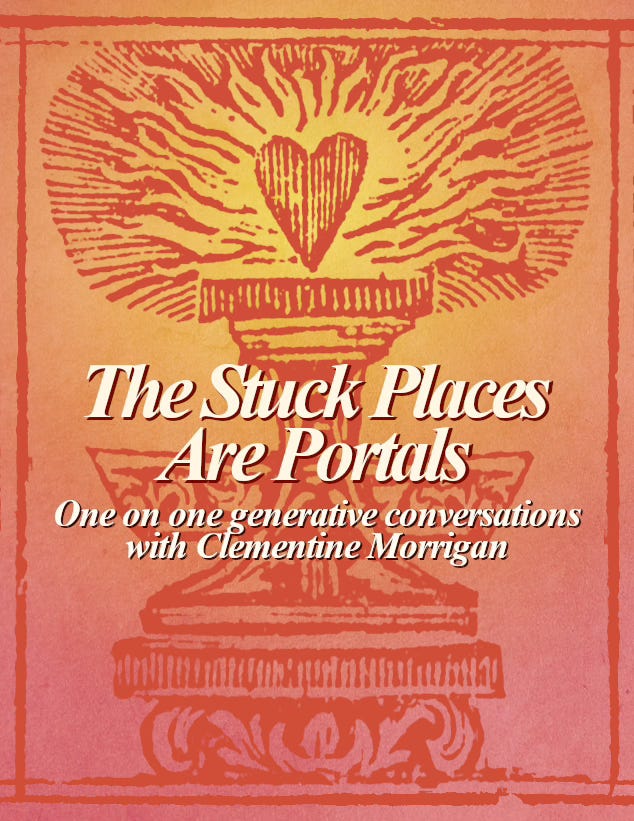
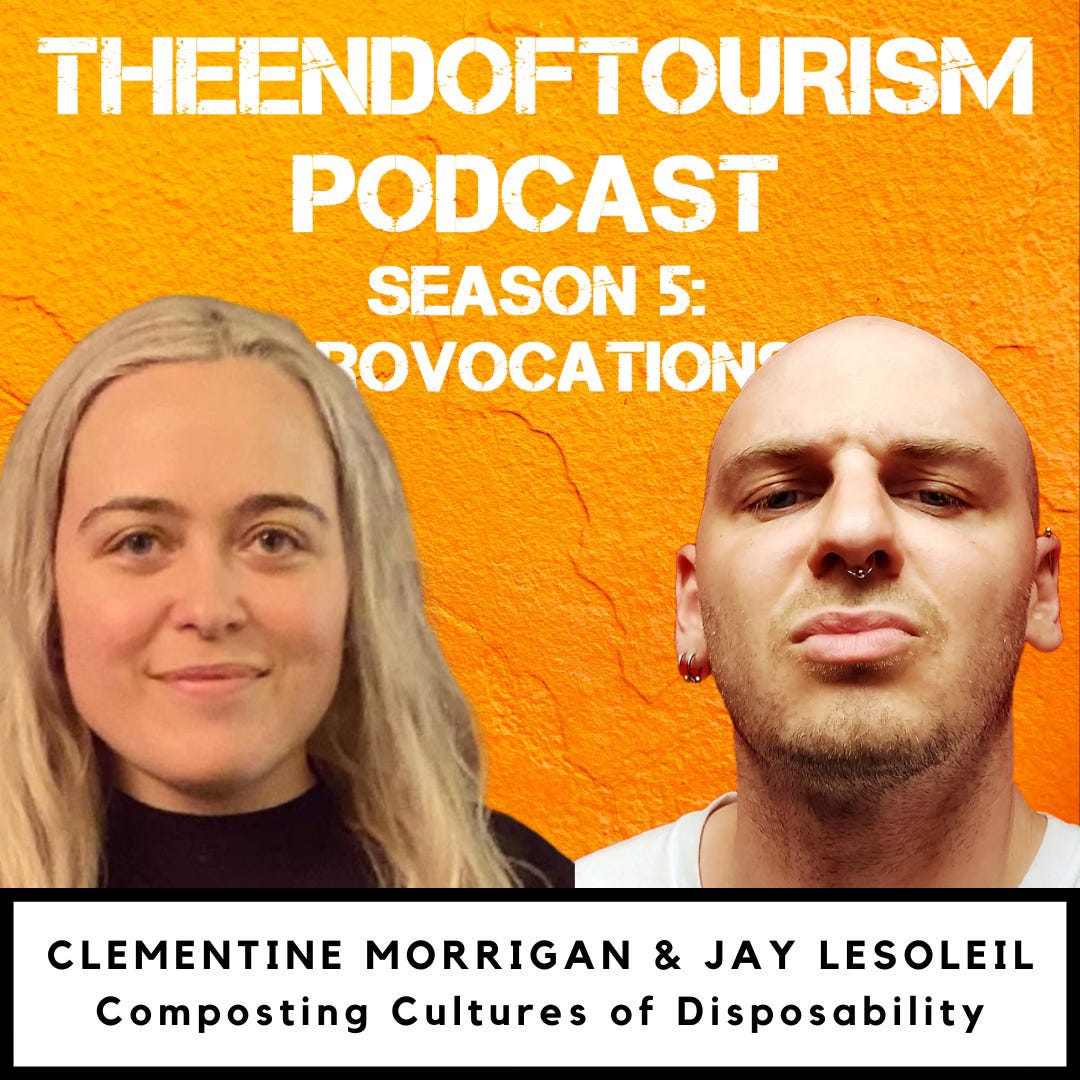
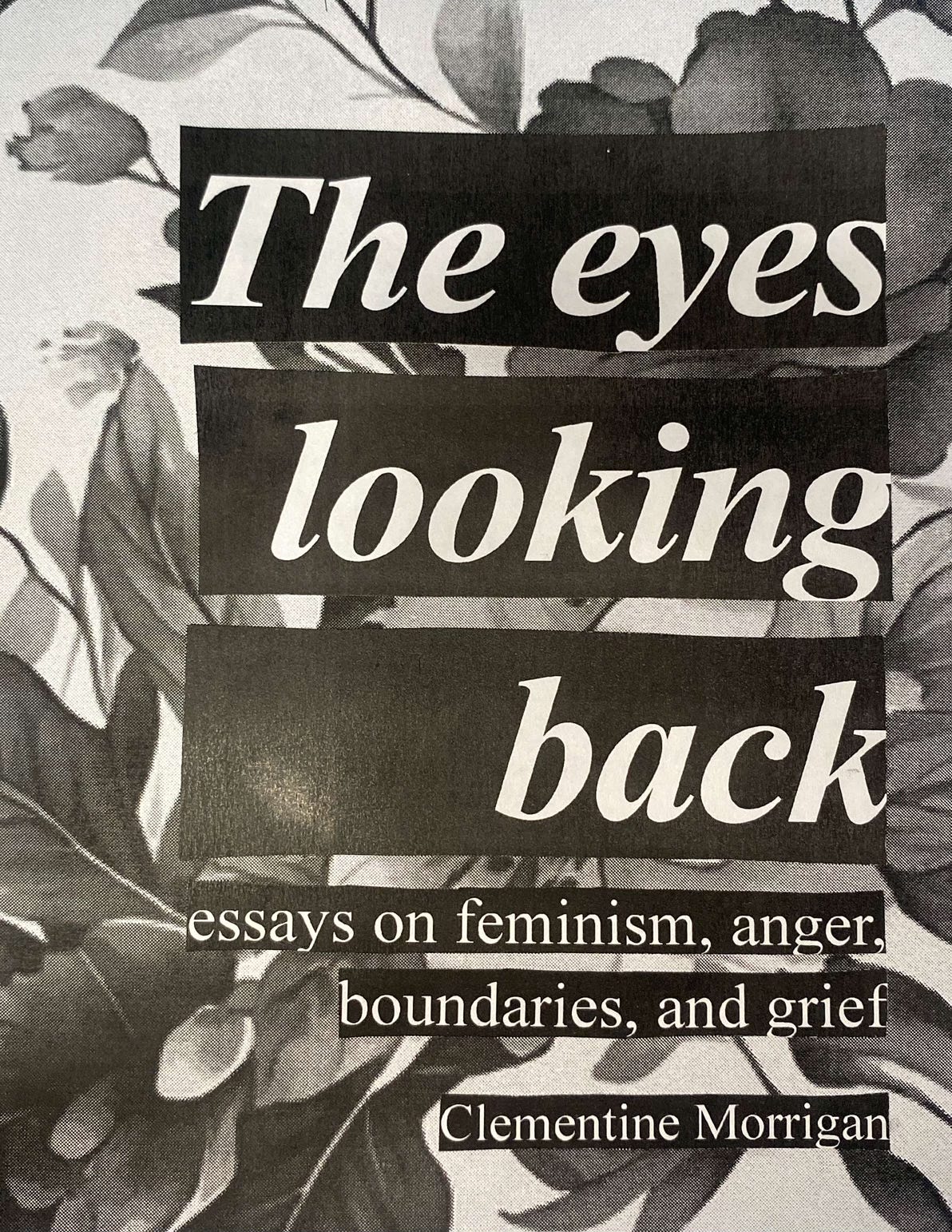
"It represents the gentrification of feminism by university educated queers who care more about language than about material needs." THIS.
I was thinking about this topic a lot, reading Caliban and the Witch, and during an abortion doula training. Reproductive issues are mostly cis women's issues and that's just the truth. And, the people who work with reproductive and holistic sexual health are also mostly cis women or afab people, which makes sense. Midwives were strictly women for most of human history. Because of material needs, not language. These are complex topics and I'm grateful as always that you're writing about them.
I’m a non-binary person who has medically transitioned (top surgery, T) but i still look pretty girly to the average person. I work at a place with only women (some cis, some trans) and they’re all very cool and I’ve been letting myself enjoy being “one of the girls” lately without judgment. And it’s wonderful! It’s wonderful to be feminine and talk unguardedly and heal the part of me that felt rejected by “the girls” as a tiny kid. There’s nothing invalidating about celebrating everything I have in common with these women and letting them love me. Not every interaction in my life has to be focused on making sure my gender is perfectly “understood”, I can embrace and enjoy having my whole self respected and accepted. Kinda went on a tangent here but I really liked what you wrote and it made me remember how much I appreciate the women who surround me with love💟🥲